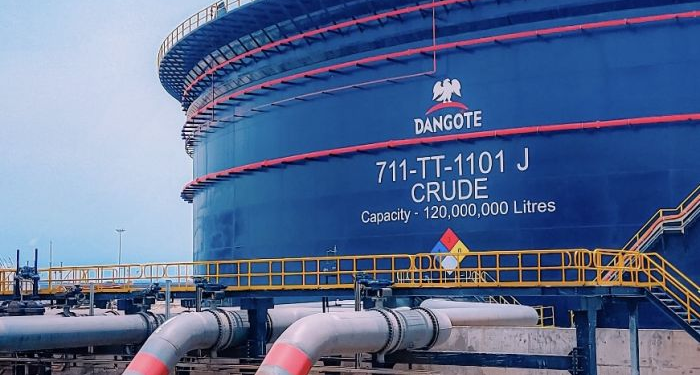The Federal Executive Council (FEC) has approved a proposal for the State oil company, NNPC Ltd, to begin selling crude oil in Naira to the Dangote Refinery, and to other refineries.
Previously, Dangote has had to purchase oil on the international market due to complaints that oil majors were blocking its access to locally produced crude by either selling it above market price or claiming it was unavailable. As a result, the refinery was forced to rely on expensive imports. Last week, the refinery was reportedly looking to Libya for oil supply.
In a statement on X, Bayo Onanuga, the president’s special adviser on information and strategy, announced that the African Export-Import Bank (Afreximbank) and other settlement banks in Nigeria will facilitate the trade between Dangote and NNPC.
“To ensure the stability of the pump price of refined fuel and the dollar-Naira exchange rate, the Federal Executive Council today adopted a proposal by President Tinubu to sell crude to Dangote Refinery and other upcoming refineries in Naira,” Onanuga said.
Currently, the 650 000 barrel-per-day Dangote refinery requires 15 cargoes of crude, costing US$13,5 billion annually, but the NNPC has committed to supplying four of these cargoes.
“But the FEC has approved that the 450 000 barrels meant for domestic consumption be offered in Naira to Nigerian refineries, using the Dangote refinery as pilot. The exchange rate will be fixed for the duration of this transaction,” it read.
The intervention is expected to eliminate the need for an international letter of credit, thereby saving the country from making dollar payments. Zacch Adedeji, executive chairman of the Federal Inland Revenue Service (FIRS), told reporters that the sale of byproducts from Dangote Refinery to distributors will also be conducted in Naira.
“And what does it mean to our economy? One, the pressure on foreign exchange will be reduced,” Adedeji said.
According to him, Nigeria spends between 30 percent to 40 percent of foreign exchange on the importation of petrol consumed by the country. He explained that the previous scenario exerted a burden of US$660 million in demand on foreign exchange per month, amounting to $7,92 billion annually.
The new arrangement is projected to reduce this amount to around US$50 million per month, or US$600 million annually, leading to annual savings of US$7,32 billion.
For comments, Feedback and Opinions do get in touch with our editor on WhatsApp: +44 7949 297606

For comments, Feedback and Opinions do get in touch with our editor on WhatsApp: +44 7949 297606.
